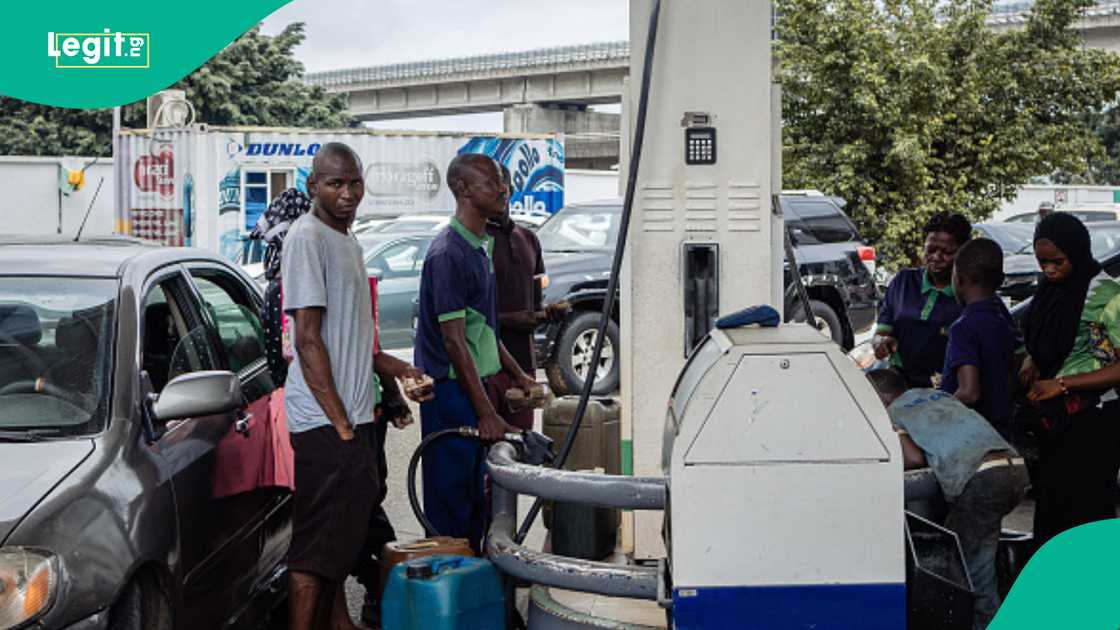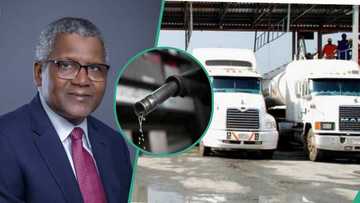New Rule: Fuel Tankers in Nigeria Banned From Loading Over 45,000 Litres From October
- The Nigerian government has implemented a new rule for tanker drivers conveying inflammable petroleum products
- Starting from October, fuel tankers in Nigeria will no longer load more than 45,000 litres of petrol at once
- The new policy was agreed upon between stakeholders to avoid road accidents, infrastructure damage and theft
From October 1, 2025, fuel tankers in Nigeria will no longer be allowed to load more than 45,000 litres of petrol at a time.
The move, endorsed by major downstream oil sector players, aims to combat road accidents, infrastructure damage, and fuel theft associated with overloaded trucks.
Why the load limit matters
The new policy emerged from a meeting involving the Independent Petroleum Marketers Association of Nigeria (IPMAN) Western Zone, the Nigerian Midstream and Downstream Petroleum Regulatory Authority (NMDPRA), Petroleum Tanker Drivers (PTD), and the Nigerian Association of Road Transport Owners (NARTO).

Source: Getty Images
Speaking on the development, Chief Oyewole Akanni, IPMAN Western Zone Chairman, said the measure addresses the long-standing issue of tankers carrying up to 90,000 litres, double or triple their designed capacity.
“These massive loads damage roads, destabilise trucks, and increase the risk of deadly crashes,” Akanni said. “We can’t continue sacrificing lives for volume.”
In addition to load restrictions, authorities now require tankers to be fitted with spill-proof safety covers, which are meant to prevent fuel leakage when accidents occur—unless the tank is punctured.
Curbing night driving and fuel theft
Another contributing factor to tanker accidents, according to Akanni, is nighttime driving. Fatigue from overnight journeys often results in driver error and fatal collisions.
To mitigate this, IPMAN has instructed drivers to stop movement by 7:00 p.m. and resume operations at 7:00 a.m. the following day. However, Akanni admitted that compliance remains inconsistent.
Also troubling is the issue of fuel theft after crashes. Vandals often tamper with fallen tankers to steal petrol, sometimes triggering explosions and environmental disasters.
A wider push for reform and safety
According to a report by Petroleumpriceng, the new 45,000-litre limit is just one part of a broader effort to reform Nigeria’s petroleum transport system. Years of poorly maintained roads, loose enforcement, and public ignorance have made tanker accidents a recurring national tragedy.
Akanni stressed that IPMAN, in collaboration with other stakeholders, is committed to strict enforcement, awareness campaigns, and policy advocacy to ensure compliance.
“Road safety goes beyond tankers. It’s about systemic change—better roads, educated drivers, stricter oversight, and a public that understands the risks of reckless behaviour,” he said.
What’s next for Nigeria’s fuel distribution?
The success of this new measure will depend heavily on monitoring, enforcement, and stakeholder cooperation. With the peak travel season approaching and fuel demand expected to rise, how effectively these new rules are implemented could determine their long-term impact.

Source: Getty Images
Dangote Refinery speaks on shutdown rumour
Legit.ng earlier reported that management of the Dangote Refinery has firmly dismissed widespread rumours of an imminent shutdown at the company’s 650,000 barrels-per-day (bpd) complex in Lagos.
Reports suggesting a planned December turnaround for its key petrol-producing unit have been labelled inaccurate and illogical.
Speaking on behalf of the company, Edwin Devakumar, Executive Director at Dangote Industries, clarified that there are no plans to shut down the Residual Fluid Catalytic Cracker (RFCC) unit.
Source: Legit.ng




